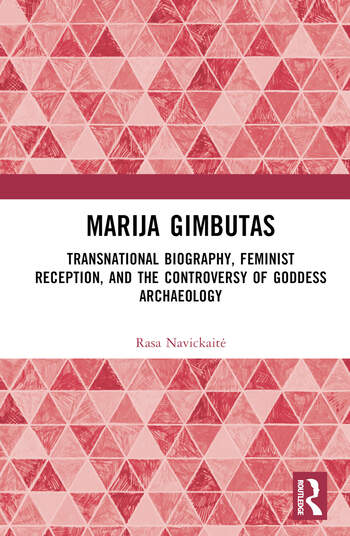
Dr. Marija Gimbutas, the Lithuanian anthropologist and archaeologist who became world-famous with her thesis about pre-Bronze Age Europe as a matriarchal culture, is the subject of a new biography. Rasa Navickaitė, a researcher at the University of Vienna, says that the celebrated Lithuanian anthropologist Marija Gimbutienė (Gimbutas) had many faces – for some, she was a scholar of paganism, for others, a radical feminist, a researcher of matriarchy.
 In her book Marija Gimbutienė. Archaeology, the Great Goddess Hypothesis, Feminism, Navickaitė examines how all the different faces of Marija Gimbutienė fit together.
In her book Marija Gimbutienė. Archaeology, the Great Goddess Hypothesis, Feminism, Navickaitė examines how all the different faces of Marija Gimbutienė fit together.
Initially, she says, she intended to write a work on the beginnings of feminism in Lithuania, its spread in post-Soviet Lithuania, women’s movements. But when she started to delve into these topics, she discovered Gimbutienė and realized that she could not talk about Lithuanian feminism without discussing the personality of Gimbutienė. And although Gimbutienė did not consider herself a feminist, it is through the feminist lens that Navickaitė chose to write the book.
“Marija Gimbutienė did not call herself a feminist, she did not accept that label. It was always important for her to stress that her theory of a matristic prehistoric European civilisation, where political and religious leadership […] was held by women, that this theory was not some ideological thing, that it did not come from activism, and that she was not a feminist activist. It was important for her to stress that it all came from her archaeological findings and from her scientific work,” said Navickaitė.
She notes that, in the United States of the 1960s and 1970s, Gimbutienė’s field, archaeology, was dominated by men, as was scholarship in general. It was an incredible achievement for Gimbutienė to become a professor at the University of California.
“We should be proud to have such a woman: for an immigrant for whom English was not her first or second language to have such a career is an incredible achievement,” says the author.
Navickaitė’s book is based on her research thesis originally written in English. It was translated into Lithuanian by Rima Bertašavičiūtė and adapted by the author for a wider readership.
The book, Navickaitė says, is primarily a biography of Gimbutienė and of her time. “The interwar period, the post-war period, the life of emigrants in both Europe and the USA: all this is touched upon,” says the author.
The book is published by Kitos Knygos. According to its author, the book shows how Marija Gimbutienė – an immigrant, mother of three and world-renowned scholar – became an inspiration for feminists in the United States without seeing herself as one.



























